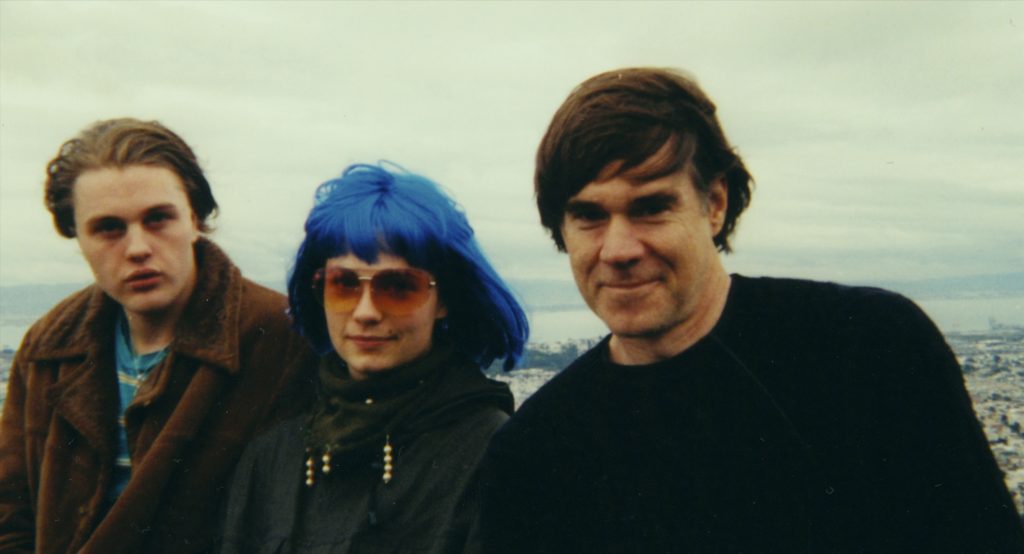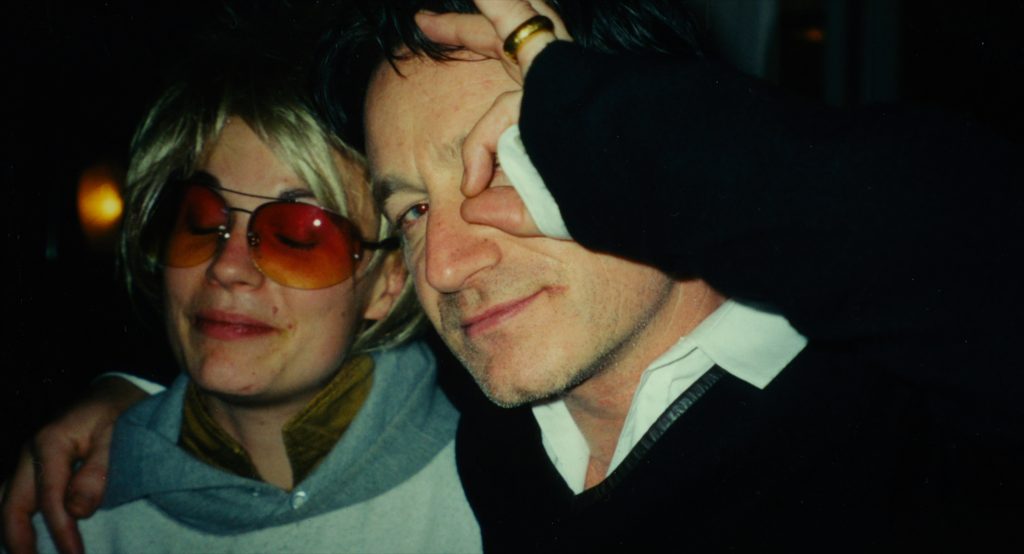5/5
The press material for AUTHOR: THE JT LEROY STORY describes its subject as, “…the literary scandal of the century.” If that’s what it takes to end up with a documentary this good, then I say let scandal run free like an unchained mastiff; the world needs more films like this one. I came out of it a maelstrom of cross-wired tensions— thrilled, angered, disturbed, and with none of the words to pin down any of what I’d just seen. Where the hell was I when such an outlandish and labyrinthine story was first turning its pages? Not only had I never heard of the JT Leroy story— up until now, I’m not sure anybody else had either, not in its most complete and deserved treatment.
I’ll try my best to be concise, though this story wasn’t made for brevity: it was the 90’s when Laura Albert, a phone sex operator in her late twenties, was stricken by a bout of depression that drove her to phoning suicide hotlines. Not as herself, mind you, but rather under the identity of Terminator, a gender-fluid boy in his early teens who had come through sexual abuse, prostitution, and heroin addiction. She fabricated the details of Terminator’s life, but the film unravels how all of them were analogs for her own; as Terminator, Laura was able to reveal embroidered traumas she could never face as naked truths.

From those calls, Terminator took on a life of his own, and as if possessed by him, Laura poured out the lurid particulars of his life in the form of short stories. When the stories, submitted under the name JT Leroy, began showing up in the hands of Laura’s favorite writers, they were flabbergasted. Here was rich, honest, startlingly original writing, and according to JT, it was all autobiographical. How could a teenager be such a wellspring of talent and searing insight? By the time Laura had released JT Leroy’s 2000 novel, Sarah, allegedly chronicling his mother’s life as a “lot lizard”, comparisons to iconoclastic voices like Truman Capote and William Burroughs were being slung hither and thither, and almost alchemically, the JT Leroy cult sprung up from nothing. Established literary powerhouses like Dennis Cooper sang his praises, and fans swarmed together to perform readings of Sarah and other works of JT Leroy, the hip and singular young voice turn-of-the-century readers had been hungry for.
Laura knew the longer it took JT Leroy to go public, the greater the risk was of being found out. Thus she began paying her sister-in-law to make public appearances in wigs and sunglasses as the camera shy Leroy, with Laura coaching her on his history and distinctive West Virginia drawl. It shouldn’t have fooled anyone. But with a face finally being put to a name, JT Leroy passed the litmus test and took up permanent residence in the cultural consciousness. He quickly became engulfed by an avalanche of celebrity attention, with the likes of Bono, Courtney Love, Winona Ryder, and Gus Van Sant all taking him under their wings and integrating him into every high-profile scene New York City has to offer. All this for a guy who didn’t exist. As a 22 year-old film critic, I saw in this little bastard every personal height I could ever aspire to (good thing my screening was dark enough to hide my envy).
And things ballooned unstoppably from there. I’m pressed to go on, but I could synopsize for an hour and still barely break the skin of this outrageous, wonderful movie. It’s an ever-peeling onion of real-life conspiracy, 00’s nostalgia, and psychological examination that leaves you stranded in free fall, with every new layer an event horizon in its own right— “Surely it must end here,” your inner voice routinely mutters. Most of the events are recounted by Laura herself in an extensive interview. Can we buy this story as she’s telling it? I’m not sure that matters. The film’s biggest triumph is how seamlessly it weds becoming wise to the fiction and becoming entwined with it. You shake your head in disbelief as an endless parade of legends and icons fall under the calculated spell of JT Leroy, but even as you see through the smoke and mirrors, you feel yourself getting swept up; part of you begs for it to be real, and it crushes you that outside of this strange bubble, a whistle is waiting to be blown.
I’ve seen a number of reviews use AUTHOR: THE JT LEROY STORY to suck bone-dry debates about authorship and to celebrate the joy of seeing celebrities getting hoodwinked. Is this really all the critical mass has conditioned itself to see? We mustn’t be so jaded and dehumanized as to allow the heartbreaking core of the film to be buried beneath TMZ-ish garble; here is the story of a talented woman so alienated from herself by years of abuse and mental illness that fiction became her only escape, and the world became so enraptured by the details that her escape slowly imprisoned her.
Or did it really? Like the best storytellers, director Jeff Feuerzeig clarifies the details only enough to raise more questions and inspire new and troubling interpretations. What if the JT Leroy phenomenon was actually Laura’s salvation, permitting her an emotional clarity she’d never truly known without the risk of public scrutiny? It allowed her to feel vulnerable without actually being vulnerable. You could call the whole thing an elaborate lie, and you wouldn’t be wrong. But what are works of art if not foggy windows into our inner lives? No work is totally free of artifice. Every true story is wedged somewhere between recollection and imagination, and every fantasy is a kindle for some flicker of truth. I don’t suspect Laura ever believed she was putting on a charade; to her, JT Leroy was simply a slumbering corner of her mind that lit up one day and began to speak.
That, I think, is the best way of deciphering the movie: as an exploration of an ailing soul tumbling down a hole dug bottomless by the insatiable fascination of the world around her. I’m not saying the world created JT Leroy, but it didn’t kill him either, and it had every chance to. The whole Leroy story was riddled with suspicions and inconsistencies that wouldn’t have lasted a week in the social media age, but they were naively overlooked, maybe knowingly so. Perhaps amidst the turbulence of the past two decades, people were simply searching for a fantasy to believe in, and in the hopeful genius of a surviving heroin addict and child prostitute, they’d finally found one. Over the course of the movie’s 110 minute, I realized that I had too.
Spencer Moleda is a freelance writer, script supervisor, and motion picture researcher residing in Los Angeles, California. His experience ranges from reviewing movies to providing creative guidance to fledgling film projects. You can reach him at: [email protected]
Spencer Moleda is a freelance writer, script supervisor, and motion picture researcher residing in Los Angeles, California. His experience ranges from reviewing movies to providing creative guidance to fledgling film projects. You can reach him at: [email protected]



















